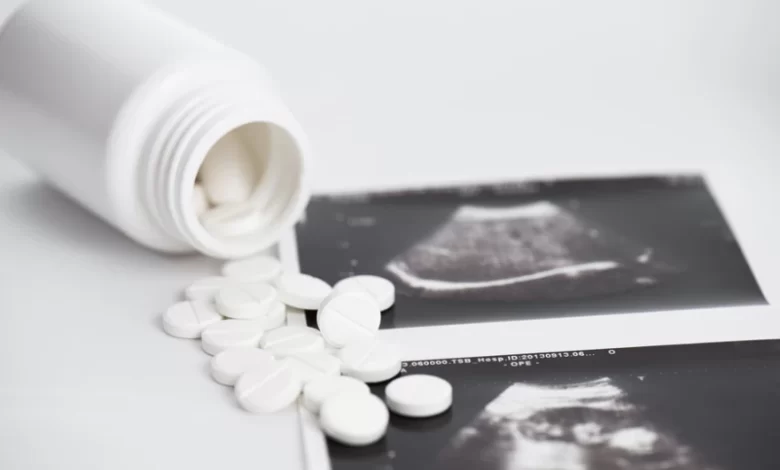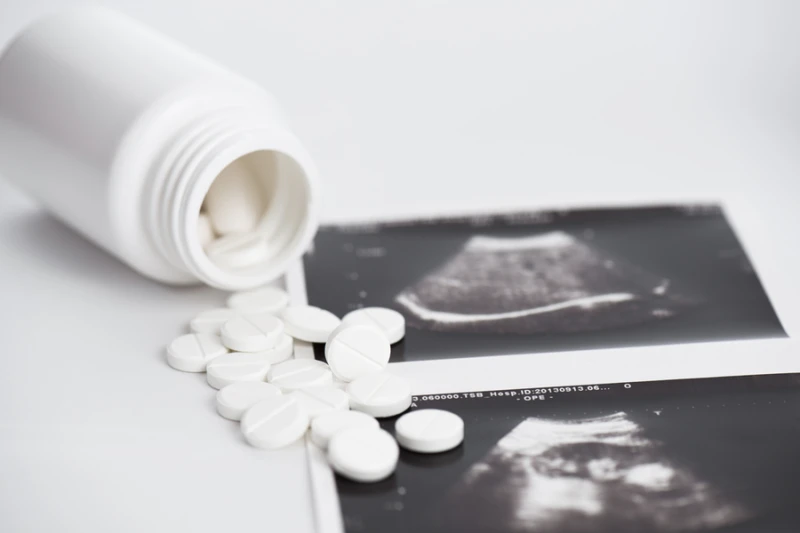Study of over 865,000 abortion pill patients: 11% suffer ‘serious adverse events’

 null / Credit: ivanko80/Shutterstock
null / Credit: ivanko80/Shutterstock Washington, D.C. Newsroom, Apr 28, 2025 / 16:52 pm (CNA).
A first-of-its-kind study that delves into public health insurance records found that more than 1 in 10 women who take the abortion pill mifepristone to complete a chemical abortion will suffer a serious health complication during the process.
The study of 865,727 patients between 2017 and 2023, which was published by the Ethics and Public Policy Center (EPPC) on April 28, discovered that 10.93% of women suffer at least one “serious adverse event” within 45 days of taking mifepristone for an abortion.
“This isn’t idle speculation; this is based on the largest data set that we know of,” Ryan T. Anderson, the president of EPPC and one of the study’s authors, told EWTN.
More than 4.7% were forced to visit an emergency room related to the abortion, more than 3.3% suffered hemorrhaging, and more than 1.3% got an infection. Thousands were hospitalized, more than 1,000 needed blood transfusions, and hundreds suffered from sepsis. Nearly 2,000 had a different life-threatening adverse event.
In 2.84% of cases, the chemical abortion was unsuccessful and was subsequently completed through a surgical abortion. In a few thousand cases, an ectopic pregnancy went undetected.
The EPPC study is the most comprehensive research on the subject to date and suggests that the controlled environment of prior clinical trials — some of which reported the rate of adverse events to be as low as 0.5% — may not reflect the real-world consequences of the widespread use of the abortion pill in an increasingly deregulated market.
As the study notes, the Food and Drug Administration (FDA) deregulated mifepristone in 2016 under President Barack Obama’s administration and again in 2023 under President Joe Biden’s administration.
The FDA lowered the number of in-person doctor visits to obtain mifepristone from three to one in 2016 and then to zero in 2023. In 2016, the FDA also removed requirements that the drugs be dispensed by a physician and taken in an office and got rid of the follow-up appointment rule and the mandatory reporting of adverse events. In 2023, the FDA opened up mail delivery for the drugs by ending the rule that they must be dispersed in a doctor’s office.
Prior to the 2016 changes, mifepristone could only be used through the first seven weeks of pregnancy. The revision under Obama changed that to the first 10 weeks.
More than half of all abortions nationwide are now conducted with mifepristone.
“Now, because of Obama and Biden, abortion pills are taken alone, at home, via mail order,” Anderson said in a joint statement with co-researcher Jamie Bryan Hall, the director of data analysis at EPPC.
“The abortion industry tells women that the abortion pill is as safe as Tylenol,” they said. “That is fundamentally false, and women deserve the truth. Because most women are denied the truth about the abortion drugs, they are terribly unprepared for subsequent complications.”
A British study from late last year confirmed that this was the case, with many women reporting that they were unprepared for the pain they experienced from the chemical abortion. Nearly half of them experienced more pain than they expected and some warned that the pain levels were “washed over,” “downplayed,” or “sugarcoated” during consultations.
Christina Francis, a practicing OB-GYN and the CEO of the American Association of Pro-Life OBGYNs, told CNA that EPPC’s data “confirms what we’re seeing in the real world” and that “even just based on my own clinical practice,” she knows “these drugs are not safe.”
Francis spoke about a patient she treated recently “who had ordered these drugs online.” The woman requested the abortion pill when she was nine weeks pregnant, but when she took them, she was “much further along … [than] when she first ordered the drugs” and suffered several health complications that required surgery.
She also discussed a colleague who treated a patient whose unborn child was expelled when the body was the “size of the palm of her hand,” which suggests the chemical abortion occurred past “the legal limit.”
“She saw her baby and it was very, very traumatic for her,” Francis said. “… This is happening in emergency rooms across the country.”
Father Tad Pacholczyk, a senior ethicist at the National Catholic Bioethics Center (NCBC), told CNA that the report “reminds us again how these toxic agents do not even belong in the field of medicine, which at its core is a healing ministry, since they directly target the life of unborn human patients.”
“Rather than being left to their own devices, when overwhelming evidence indicates that this powerful pharmaceutical has a high probability of causing sepsis, infection, hemorrhaging, or other life-threatening outcomes, women are entitled to more restrictive regulation over those distributing these drugs, improved follow-up and surveillance in the aftermath of their self-administration,” Pacholczyk added.
EPPC urges Trump administration review
The researchers at EPPC encouraged President Donald Trump’s administration to review the current regulations and reimplement the safeguards that existed prior to the deregulation of the Obama and Biden administrations.
This would require three in-person doctor visits and confirmation that the woman’s pregnancy is still within the first seven weeks, as was originally required by the FDA. It would also require that the drug be prescribed by a physician and administered in person. It would also reestablish the mandatory reporting of adverse events.
“We’re hopeful the Trump administration will do the right thing,” Anderson told EWTN News.
Trump has promised that he would not ban the abortion pill but did not rule out regulating the drugs. Secretary of Health and Human Services Robert F. Kennedy Jr. said earlier this year that he planned to investigate safety concerns related to mifepristone.
“Even pro-choice citizens should want to make sure that women make an informed choice, based on all the facts, and that any drugs they take are safe,” Anderson and Hall said in their joint statement provided to CNA.
Christina Francis agreed, emphasizing: “We cannot place abortion access above patient care and patient safety.”
“[This] should be something that all of us can agree on and come together on,” she said.






